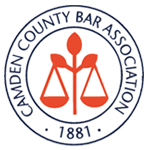 Although some workers’ compensation claims proceed smoothly, others are more complicated. Some injured workers end up having their cases disputed by their employers’ insurance companies. Since premiums increase as more employees make claims, it is common for companies to challenge them.
Although some workers’ compensation claims proceed smoothly, others are more complicated. Some injured workers end up having their cases disputed by their employers’ insurance companies. Since premiums increase as more employees make claims, it is common for companies to challenge them.
During the dispute process, injured employees may be required to give depositions, which are not the same as going to trial; a deposition is a different type of legal procedure. In a workers’ compensation deposition, the injured worker is questioned under oath. These responses are recorded, and can be used as evidence if the case ends up at a hearing.
The Deposition Process
Being prepared for the deposition is essential, and an injured worker can benefit from having an experienced workers’ compensation lawyer to represent them. The worker should gather pertinent records, such as medical and accident reports. Usually, the proceedings take place at the lawyer’s office of the insurance company. Aside from the lawyer, there will also be a court reporter present.
The employee will first swear an oath. Then, the insurance company’s lawyer will ask questions, and the court reporter will transcribe the session and provide a written transcript. Employees should provide honest answers, since false information may lead to charges of perjury. It is recommended to listen carefully to each question and to never hurry through answering. Volunteering information can be detrimental; employees should answer the questions clearly and succinctly, without elaborating.
What Questions are Asked at Depositions?
Although every workers’ compensation deposition is different, workers can expect to answer some basic background questions pertaining to their work history, date of birth, address, education, and any criminal history. The lawyer may also ask about any prior accidents, as well as the circumstances of the accident in question.
Employees should be prepared to answer inquiries about how the accident or illness occurred. Since workers’ compensation is a no-fault system, this category of questions may be more limited. There will also be questions about the diagnosis, its cause, severity, and treatment. Additional information about how the illness or injury is affecting the employee’s daily living and ability to work will also be required. Workers that experienced one-time accidents may have shorter depositions than those suffering from repetitive stress injuries or occupational illnesses, since the latter two may be harder to trace.
Keep Calm
Employees should remain polite and calm during the deposition, although this can be challenging. It is acceptable to request a break, which can be helpful. Certain questions can get personal, especially if the other party is seeking another cause that led to the employee’s condition. On average, depositions last a few hours, but can be longer if the injuries are more extensive. The insurance companies usually ask for just one deposition, although an additional employee claim may require a second one.
Cherry Hill Workers’ Compensation Lawyers at Pietras Saracino Smith & Meeks, LLP Handle Workers’ Compensation Depositions
You do not have to face a workers’ compensation deposition alone. Contact the Cherry Hill workers’ compensation lawyers at Pietras Saracino Smith & Meeks, LLP for knowledgeable legal guidance for your workers’ compensation claim. Complete an online form or call us today at 856-761-3773 for a free consultation. Located in Cherry Hill, New Jersey, we represent clients throughout South Jersey, including the City of Camden.






